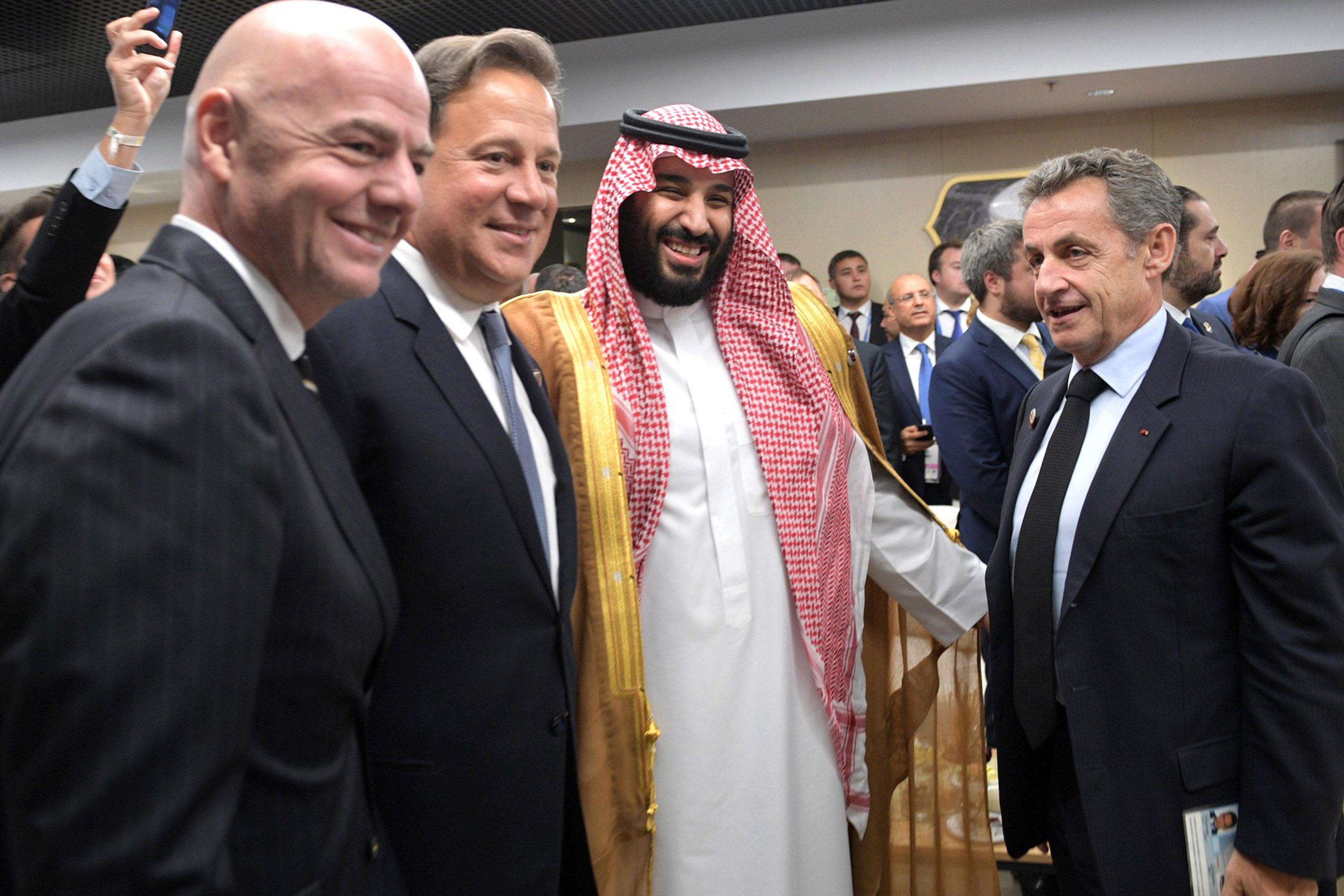Fifa must secure Saudi promise over World Cup human rights, Amnesty International warns
Fifa urged to secure commitments to improving human rights in countries likely to host the 2034 World Cup

Fifa has been urged by Amnesty International and other global organisations to secure binding commitments to improving human rights in countries due to host the 2030 and 2034 World Cups.
Saudi Arabia has emerged as the sole bidder for the 2034 event after Australia confirmed on Tuesday that it would not be bidding for the tournament. Fifa president Gianni Infantino has a close relationship with Saudi Arabia’s Crown Prince Mohammed bin Salman, and the governing body has done numerous sponsorship deals with Saudi companies.
For the 2030 event, Morocco, Portugal and Spain’s joint bid was the only one considered, with the opening three games to be held in Argentina, Uruguay and Paraguay to celebrate the World Cup’s centenary.
The 2022 World Cup in Qatar took place against a backdrop of human rights concerns, and the Sport and Rights Alliance – a coalition of leading NGOs and trade unions including Amnesty and Football Supporters Europe – has called on Fifa to take the lead and secure human rights guarantees from the bidders.
“With only a single bid for each tournament on the table, Fifa may have scored an own goal,” Steve Cockburn, Amnesty International’s head of economic and social justice, said in a statement. “Fifa must now make clear how it expects hosts to comply with its human rights policies. It must also be prepared to halt the bidding process if serious human rights risks are not credibly addressed.
“The best chance for Fifa to obtain binding guarantees to protect workers’ rights, ensure freedom of expression and prevent discrimination linked to the World Cup is during the host selection process – not after the hosts have been confirmed and tournament preparation has begun. Human rights commitments must be agreed with potential hosts before final decisions on holding the tournaments are made.”
The Qatar World Cup was marred by the mistreatment of workers who built the tournament’s stadiums and infrastructure, the malpractice of recruitment agents and a lack of investigation into worker deaths.
“Fifa’s failure in 2010 to insist on human rights protections when it awarded the 2022 World Cup to Qatar is a major reason why serious reforms were so delayed, and so often weakly implemented and enforced,” said Ronan Evain, executive director of Football Supporters Europe. “Fifa is now required under its own human rights rules to take these lessons seriously and take firm action. It would be a first step to salvage the already tarnished reputations of 2030 and 2034 World Cups with supporters.”
According to guidelines published by Fifa, any countries bidding to host the 2030 or 2034 World Cups must commit to “respecting internationally recognized human rights” and “requires human rights and labour standards to be implemented by the bidding member associations, the government(s) and other entities involved in the organisation of the Competitions”.
As part of their official bids, countries must undertake and publish an independent human rights risk assessment and submit a plan that outlines how key risks identified will be addressed.
Join our commenting forum
Join thought-provoking conversations, follow other Independent readers and see their replies
Comments


Bookmark popover
Removed from bookmarks